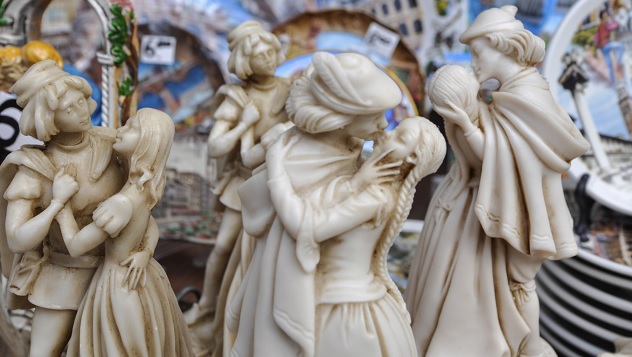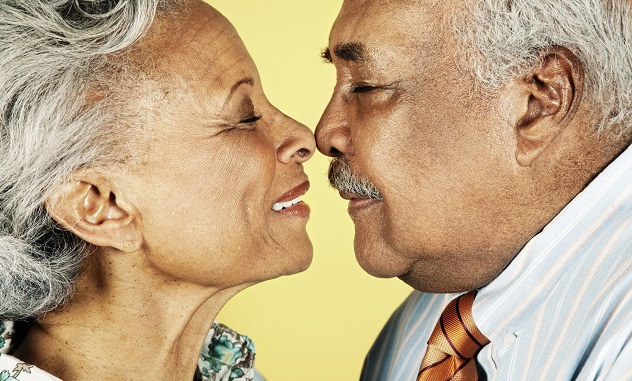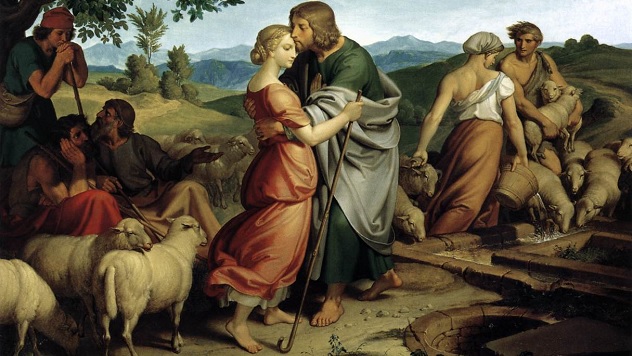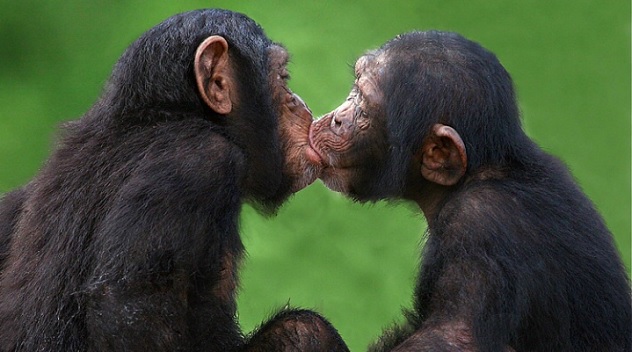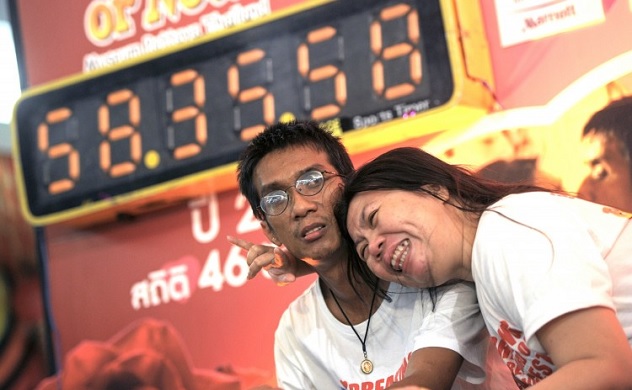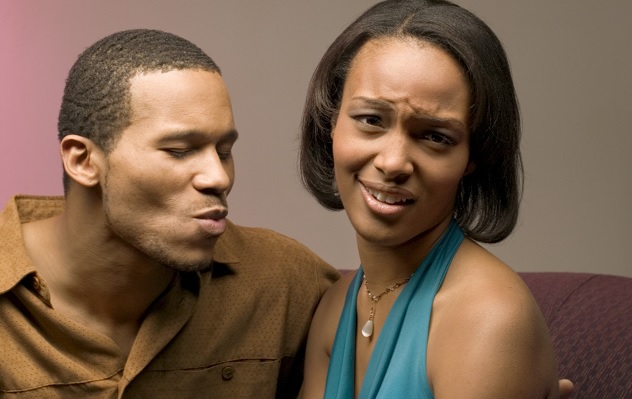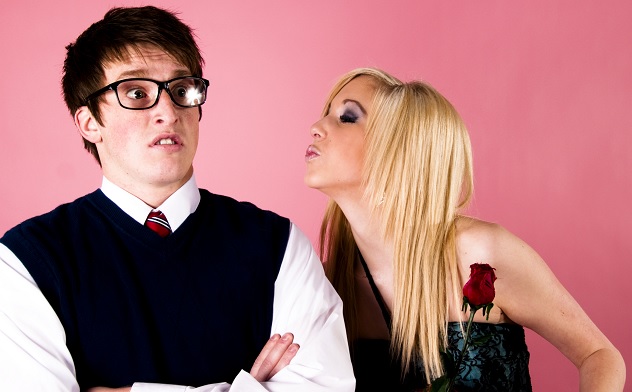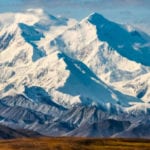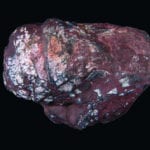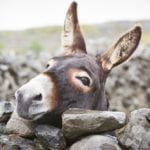10The Origin Of The Word
The word “kiss” comes from the Old English word cyssan, which technically means “to kiss.” No one is completely positive where cyssan comes from, but people suspect that it represented the sound people make when they kiss. The Romans had several words for several different types of kissing. Kissing the hand or cheek was known as basium, closed-mouth kissing was known as osculum, and a passionate kiss was known as a saviolum. The Greeks, meanwhile, might not have had words for kissing in particular, but they did have several words for love. Philia was a loyal kind of love, the kind you have for your friends and family. There was also eros, a more passionate kind of love. However, Plato once stated that eros could also be used to describe appreciation for another person’s beauty. He also stated that true love did not have to be based on physical attraction. Finally, the Greeks used agape to describe the strongest and most beautiful love of all—the pure, unconditional love and affection shared among family and only the closest of friends.
910 Percent Of The World Doesn’t Kiss
At roughly 18 million years old, Mangaia Island is the oldest island in the Pacific Ocean. Despite all the time its inhabitants have had, they’d never heard of kissing until the English introduced them to the practice in the 1700s. These days, around 90 percent of the world’s cultures kiss. The other 10 percent doesn’t do so for a variety of reasons. For example, some areas in Sudan refuse to kiss because they believe that the mouth is the window to the soul, and they fear having their soul stolen by mouth-to-mouth contact. The famous Eskimo kiss—in which people bump noses together instead of their mouths—didn’t start because they feared having their mouths frozen together as some believe. It happened because, due to the extreme cold, the Eskimos would only have their eyes and noses exposed and had to invent their own method of displaying affection. Today, it is one of the most popular non-kissing kisses in the world.
8How Kissing Spread All Over The World
Scientists aren’t sure how kissing got started. They don’t even know for sure if it was an instinctual or learned behavior. Those in favor of the latter believe kissing started by “kiss feeding,” where the mother would chew up food in her mouth and then pass it to their baby’s mouth like a bird. The first mention of kissing as a romantic gesture was found in poems from Sumer, the earliest known civilization in the world. Kissing has also been described in ancient Egyptian love poetry, and even the Bible’s Book of Genesis describes Jacob kissing his wife, Rachel. Historians believe that kissing probably spread when Alexander The Great invaded India, where kissing had been commonplace for centuries. It was described in Vedic scriptures as “touching with their mouths,” which is as apt a description as any. Alexander then brought the knowledge of kissing to the western world, and we haven’t stopped since.
7Many Animals Other Than Humans Kiss
Even though it might not be exactly how we do it, several other animals engage in affectionate behavior that’s remarkably similar to our kissing. Chimpanzees oftentimes demonstrate kiss-like behavior after a fight as a way to “kiss and make up” so to speak. Studies have shown that this type of behavior isn’t just confined to chimpanzees—many other primates “kiss” in their own way. Non-primate animals engage in kiss-like behavior as well. Meerkats, for example, will nuzzle and lick each other’s scent glands to mark one another as the alpha and the subordinate. This is especially important after a meerkat returns to their group because the alpha female kicking them out is quite often the reason they left in the first place. We can’t forget elephants, one of the most intelligent and emotional creatures on Earth. During hard times like the death of a herd member, elephants have been observed sticking their trunks in each others’ mouths as a gesture of both consolation and comfort.
6Kissing Has Many Health Benefits
Several studies have shown that kissing, in addition to being extremely pleasurable, is actually good for you. While most of our bacteria is identical to everybody else’s, 20 percent of it varies between each individual. This means that every kiss actually helps boost your immune system. In addition, kissing can also help keep your teeth clean. The extra saliva produced when you kiss washes out dangerous bacteria, keeping your molars shiny and white. Kissing can also lower your blood pressure, as those butterflies fluttering around your stomach and getting your heart pumping wildly cause your blood vessels to dilate. Of course, none of this does any good if you kiss someone who’s sick. Diseases like herpes, the common cold, and even meningitis can be spread via kissing. However, these cases are extremely rare, and scientists agree the benefits of kissing far outweigh the risks.
5The Science Of Kissing
The study of kissing is known as philematology. Those who study it tend to not only focus on the biology of kissing and the hormones involved, but also why we kiss. Many people say that the first kiss makes a big first impression, but scientists believe it can go beyond that. They believe that kissing can provide sensory clues—such as taste, sound, and smell—that encourage additional kissing to occur. But if the kiss is no good, it might clue the other person in to the benefits of running away. Studies have shown that 59 percent of men and 66 percent of women have becomes less attracted to a person after kissing them for the first time. Another study of more than 1,000 college students revealed that women tend to be more into kissing than men, and that they’re far more likely to insist on kissing before the clothes start flying off. Science also explains why kissing feels so good physically. As it turns out, our lips are highly sensitive and more tightly packed with nerve endings than the majority of our body parts.
4World Records For Kissing
Currently, the world record for longest kiss belongs to Thailand’s Ekkachai and Laksana Tiranarat. They made history in 2013 by kissing for 58 hours, 35 minutes, and 58 seconds at a Ripley’s Believe It Or Not Event. They broke the former record, held by Andrea Sarti and Anna Chen, in convincing fashion. Back in 2004, Sarti and Chen kissed for 31 hours and 18 minutes. The two only stopped because they nearly passed out—Chen had to lie down while Sarti actually ended up requiring oxygen. Their story had a happy ending, though, as Sarti used the $12,700 prize money to marry Ms. Chen. Even among non-record holders, the amount of kissing the average person does is amazing. Studies have shown that the average person kisses for two total weeks throughout their lives. Most people burn around 1,560 calories for every hour of kissing, meaning the average person loses 30,240 calories over a lifetime simply by locking lips. Of course, this all depends on what type of kiss you engage in. A quick smooch isn’t going to do much of anything, after all. But if you work hard enough that you find yourself out of breath, you’re definitely burning some fat. It’s not as effective as a jog or a swim (it actually doesn’t even come close, so don’t justify that double cheeseburger with a heavy make-out session), but it’s definitely a lot more fun.
3Kissing Involves Actual Chemistry
It appears that the idea of successful relationships requiring a lot of good chemistry isn’t so corny after all. Studies have shown that kissing actually releases a chemical called dopamine. This is a powerful hormone that affects the same areas of the brain as cocaine does, and it can cause extremely powerful feelings of craving and desire. It also causes symptoms like lack of sleep, decreased appetite, and a higher level of energy. Some scientists suspect that dopamine might also have something to do with why people cheat. As the novelty of kissing your partner wears off, your body actively produces less and less dopamine. Seeking to discover that hormonal rush again, some people end up wandering behind their partner’s back in search of it. In contrast, kissing somebody you’ve been with for a long time releases oxytocin, a hormone that creates very strong feelings of peace and relaxation. Scientists emphasize the importance of couples continuing to kiss regularly, as doing so keeps the oxytocin flowing and the happiness levels high.
2Anti-Kissing Countries
Crazy as it may sound in 2014, there are still many countries where public affection is illegal. In Mexico, university professor Manuel Berumen was arrested for kissing his wife in public. In some countries, though, the punishments are extremely brutal. In 2010, a Saudi Arabian man was arrested for hugging and kissing a woman. He was found guilty and sentenced to three sets of 30 lashes each, plus four months in prison. To prevent an extremely awkward situation, you should always check with the United States Department of State before you travel to another country. You should also know how to contact the United States Embassy in whatever country you’re visiting just in case you suddenly need help. Nothing dampens a good mood quite like jail time.
1Fear Of Kissing
Everyone’s scared of their first kiss. After all, what if you mess up and turn your partner off for good? For most of us, as we get more experienced with kissing, those first-time jitters fade away over time. For others, though, this fear is much more serious and is called philemaphobia. Like most phobias, it isn’t likely to go away over time. People can develop philemaphobia for many reasons. If somebody suffers from a fear of germs, for example, an aversion to lip-to-lip contact might very well develop into philemaphobia. Others develop philemaphobia thanks to traumatic incidents like rape and physical abuse. Usually however, people with philemaphobia struggle to understand why they have it. This causes further stress and unease, as they fear others will view them as silly or ridiculous for cowering over something so many love so much. Ashley Lewis is a college student sweating blood and tears while trying to finish her first novel. She has also created several lists about the wacky and weird for her high school newspaper.
